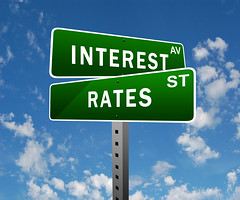Loans – Is It A Good Idea To Pay Them Off Early
If you’ve taken out a loan and are in the process of paying it off, you have probably thought a little about a time frame for finishing your payments. You might be wondering if it’s a good idea to pay the loan off early or if it would be better to wait and just follow your payment schedule.
Obviously, there would not be any possible benefit to paying it off late, unless you want to severely hurt your credit score. There are both pros and cons to paying your loans off early, and it’s important to weight them all before making any financial decisions. The end goal here is to have more money and no debt in retirement.
Consider Your Budget Outside of the Payment
The first thing you should do is carefully examine your monthly budget to make sure that you can actually afford to pay this loan off early. If you are barley skating by as it is, don’t even bother using that bonus check you just got for your loan payment. The extra money might be needed in the future for unexpected expenses.
You should only consider paying a loan off early if you find that your monthly budget has a significant surplus. If you find such an excess of funds that you know for a fact you can cover all of your bills, as well as the unanticipated costs, then you can throw some extra money onto that monthly payment to lower it down some more as you transition into retirement. If you really come into a good deal of money you might even be able to afford paying the whole loan off at once. Paying off debts all together is a great way for retirees to enjoy their pension or other fixed income without having to worry about monthly expenses.
Take a Look at the Interest Rate
Alright, so you have the money to pay your loan off right now and not need to worry about any sort of monthly payment on it anymore. Keep in mind though, that when you pay your debt, you no longer have that money. If an investment offers you more interest back on the money in your bank account than the loan adds on to monthly payments, then you may want to hold back and pay off your debt month by month.
In this situation, the money in your bank will rise faster than the debt rises via interest and you can end up making more money over time. If your loan has a particularly high interest rate, you should pay it off faster because whichever company loaned you the money is reeling in a whole bunch of cash off your high interest payments and you deserve that money in your pocket instead. If you continue to pay the monthly minimum, it’ll take you exponentially longer to pay off and you’ll be in debt throughout the majority of your retirement.
Paying off substantial loans such as your car payment or the mortgage on your house can give you some serious peace of mind. It’s one less thing to worry about, and especially if you’re approaching retirement, it’s a great feeling to have fewer monthly expenses. As long as you have enough savings to pay the debt and your interest rates cannot be used to your advantage, you should consider paying your loans off early.
A debt free retirement is something very attainable that many strive for but do not fully accomplish. If you come up with, and stick to, a plan, you should have no problem retiring on top of a large savings pile.
Hugh Tyzack is Managing Director and founder of GBP Loans Limited, which was formed in 2008. GBP Loans specialises in no fee Guarantor Loans and it has been a driving force in trying to eradicate bogus fee charging and is now one of the UK’s biggest providers. You can find more about unsecured personal loans from www.loansforbad-credit.co.uk . When he is not writing the Blog, Hugh enjoys listening to music and playing the piano. Follow Hugh on Twitter @GBPLoans and also on Google+

Category: Loans






